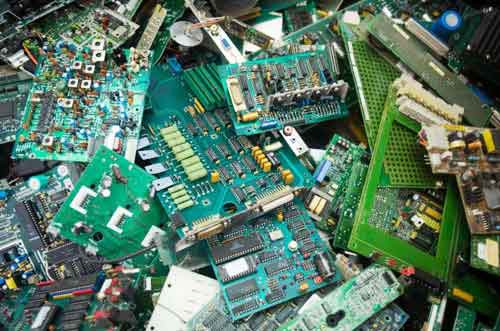|
Electronic firms to manage e-waste
Within the next
two years, all producers of electronic products in
Under a new prime ministerial
decision, from January 1, 2015, producers of electronic products will be
responsible for treating or recycling electronic waste including computers,
printers, cameras, mobile phones, TVs, refrigerators, air-conditioners and washing
machines.
To ensure compliance, producers must
annually report the quantity of products produced or imported which have been
sold in
Currently, producers are not required
to perform any of these activities.
In order to help companies achieve
these targets, the world’s leading IT multinational corporations like Apple,
Canon, Dell, Lenovo, Hewlett Packard, Panasonic, Sony and Toshiba have formed
the Information and Communications Technology Group (ICT Group) which will
work in tandem with Vietnam’s Institute for Environmental Science and
Technology (INEST) to create an e-waste collection and treatment model in the
country.
Under a joint report by the ICT Group
and INEST on the issue, producers need to collect, dismantle, treat or
recycle e-waste, and establish collection centres or authorise other
establishments to collect e-waste. Producers also need to transport discarded
products from collection centres to recycling facilities.
Monina De Vera-Jacob, Southeast Asia
Environmental manager of Hewlett Packard Asia Pacific, said: “Producers must
collaborate with different stakeholders [the government, importers,
distributors and retailers] to establish a management system including
collection, sorting and recycling discarded products.”
“Producers must establish a financial
mechanism for collecting and recycling e-waste,” she added.
Under plans outlined by the joint
report, consumers will bring discarded electronic products to designated
collection centres, before such e-waste is transported to producers’
appointed recycling facility.
“If this model becomes a reality,
producers will have to spend money implementing transportation, treatment and
recycling activities,” INEST director Huynh Trung Hai told VIR. “This model
is very common in many nations in Europe and
However, Ho Kim Ngoc, director of
locally-owned Ngoc Tan Kien Company which treats e-waste for Intel, Panasonic
and Unilever, told VIR the model would be infeasible if unlicensed scrap
collectors weren’t dealt with.
“Without such collectors, households
will bring e-waste to collection centres,” Ngoc said.
E-waste volume in
Although the growth rate of discarded
e-waste is forecast to fall from 2011 to 2020, “the high growth of ICT sales
and discarded products has made Vietnam a potential Waste Electric and
Electronic Equipment (WEEE) recycling market,” said Deputy Minister of
Natural Resources and Environment Bui Cach Tuyen.
The joint report estimated that by
2020 about 161,000 TVs, 97,000 PCs, 178,000 refrigerators, 136,000 washing
machines, and 97,000 ACs will require recycling in
There are currently around 400
electronic producers in
Source: VIR
|
Thứ Ba, 19 tháng 11, 2013
Đăng ký:
Đăng Nhận xét (Atom)

Không có nhận xét nào:
Đăng nhận xét